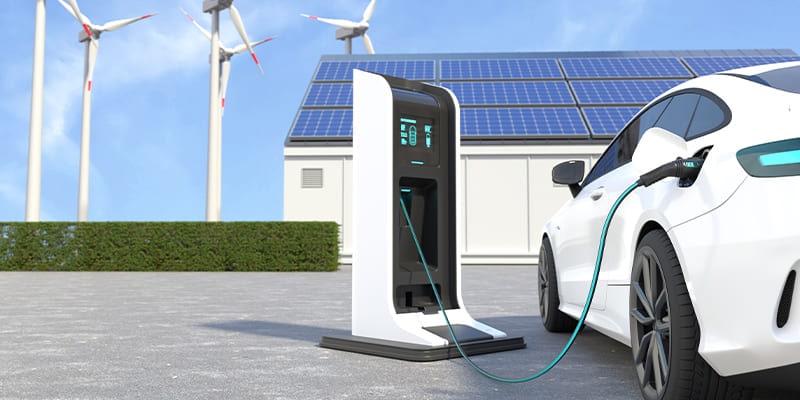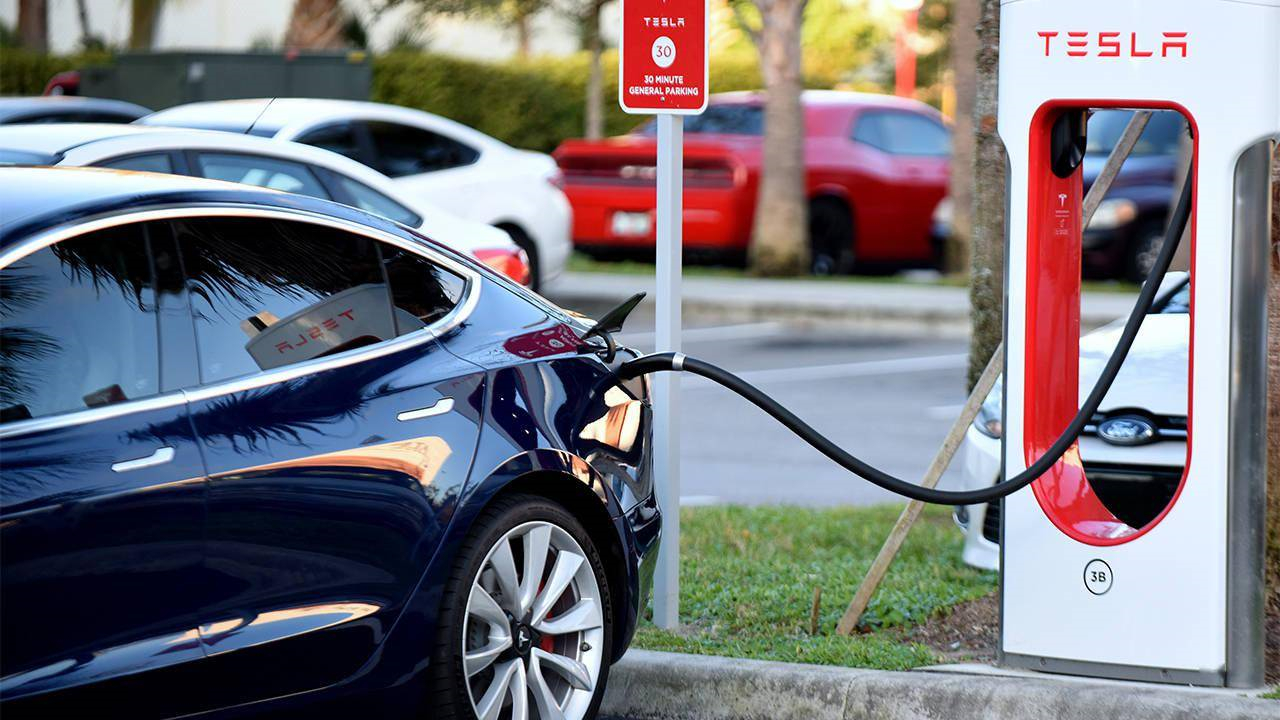Introduction
Electric Vehicles (EVs) have gained significant traction in recent years as they offer a sustainable and eco-friendly mode of transportation. With the increasing adoption of EVs, the need for adequate charging infrastructure in residential communities becomes crucial. This article explores the various benefits of installing EV charging stations in residential areas, ranging from environmental and economic advantages to social benefits and convenience.
Environmental And Sustainability Benefits
Installing EV charging stations in residential areas brings about significant environmental and sustainability benefits. Let’s explore some of them:
Reduction in greenhouse gas emissions
EVs have the advantage of being powered by electricity instead of fossil fuels. By transitioning from conventional vehicles to EVs, residential communities can make a substantial impact in reducing greenhouse gas emissions. This reduction plays a vital role in combating climate change and creating a cleaner environment for all.
Air quality improvement
Traditional vehicles powered by internal combustion engines emit harmful pollutants that contribute to air pollution. In contrast, EVs produce zero tailpipe emissions, leading to a significant improvement in air quality. By embracing EV charging infrastructure, residential areas can create a healthier and more breathable environment for residents.
Support For Renewable Energy Integration
The growing demand for electricity due to EV charging can be effectively met by integrating renewable energy sources. By utilizing clean and renewable energy for charging EVs, residential communities can further reduce their carbon footprint and actively contribute to the integration of sustainable energy practices.
Contributing To A Sustainable Future
By embracing EV charging infrastructure, residential communities take a proactive role in building a sustainable future. They contribute to the global efforts to reduce dependence on fossil fuels and promote a greener transportation system. Installing EV charging stations is a tangible step towards achieving sustainable development goals and creating a better world for future generations.
Economic Benefits
Installing EV charging stations in residential areas brings about various economic advantages. Let’s explore some of them:
Cost savings for EV owners
EVs offer significant cost savings compared to traditional gasoline-powered vehicles. EV owners enjoy lower operating and maintenance costs, as electricity is generally cheaper than gasoline. Additionally, there may be incentives such as tax credits, rebates, or reduced electricity rates for EV charging, further reducing the overall cost of ownership. By providing convenient access to charging infrastructure, residential communities empower residents to enjoy these cost-saving benefits.
Boosting the local economy and job creation
The installation of EV charging stations in residential communities creates economic opportunities. Local businesses can provide services such as installation, maintenance, and repair of charging infrastructure, creating new job prospects. Moreover, the presence of EV charging stations attracts EV owners to frequent local establishments, such as shops, restaurants, and entertainment venues. This increased foot traffic contributes to the growth of the local economy and supports local businesses.
Increased property value
Residential properties equipped with EV charging stations experience an increase in value. As the demand for EVs continues to rise, homebuyers and renters prioritize properties that offer convenient access to charging infrastructure. EV charging stations enhance the appeal and desirability of residential properties, resulting in increased property value. By installing EV charging stations, residential communities can provide an attractive amenity that positively impacts property prices.
Social Benefits
Installing EV charging stations in residential areas brings numerous social benefits. Let’s explore some of them:
Enhanced community reputation
By embracing EV charging infrastructure, residential communities demonstrate their commitment to sustainability and forward-thinking transportation solutions. This dedication to eco-friendly practices enhances the community’s reputation, both locally and beyond. It showcases the community’s progressive mindset and attracts environmentally conscious individuals and businesses. Embracing EV charging stations can foster a sense of pride and unity within the community.
Encouraging sustainable transportation choices
Installing EV charging stations in residential areas promotes sustainable transportation choices. By providing convenient access to charging infrastructure, communities encourage residents to consider EVs as an alternative to traditional vehicles. This shift toward sustainable transportation reduces dependence on fossil fuels and contributes to a greener and cleaner environment. Encouraging the use of EVs aligns with the community’s commitment to sustainability and sets an example for others to follow.
Improved public health and well-being
The reduction of air pollution from vehicle emissions has a direct positive impact on public health. By promoting the use of EVs and installing charging stations in residential areas, communities contribute to improved air quality. This leads to better respiratory health and overall well-being for residents. The cleaner air enhances the quality of life within the community, reducing the risks of respiratory illnesses and related health issues.
Convenience And Accessibility
Installing EV charging stations in residential areas offers significant convenience and accessibility benefits. Let’s explore some of them:
Avoiding range anxiety
One of the concerns for EV owners is range anxiety, which refers to the fear of running out of battery power while driving. EV owners can alleviate this anxiety by having charging stations in residential communities. They can conveniently charge their vehicles at home or within close proximity, ensuring they always have sufficient range for their journeys. The availability of charging infrastructure within the community eliminates the worry of being stranded without a charging option, providing peace of mind and enhancing the overall driving experience.
Easy access to charging facilities
Residential communities with EV charging stations provide residents with easy access to charging facilities. EV owners no longer need to rely solely on public charging stations or travel long distances to charge their vehicles. Instead, they can conveniently charge their EVs at their residence or within the community, saving time and effort. This accessibility ensures that EV owners have a reliable and convenient charging solution right at their doorstep.
Charging station availability and utilization
Installing EV charging stations in residential areas increases the availability and utilization of charging infrastructure. With more charging stations distributed throughout the community, EV owners have greater options and flexibility in finding an available charging spot. This reduces wait times and congestion at charging stations, allowing for a more efficient and seamless charging experience. The increased utilization of charging stations ensures that the community’s investment in EV infrastructure is maximized, benefiting a larger number of residents.
Types Of Mida EV Charging Stations For Residential Communities
Regarding EV charging stations for residential communities, Mida offers a range of options to suit different needs. Let’s explore two popular choices:
RFID EV Charging Station
Mida’s RFID EV charging station is designed to provide secure and convenient charging for electric vehicles. This type of charging station utilizes Radio Frequency Identification (RFID) technology, allowing users to access the charging facilities using RFID cards. The RFID system ensures that only authorized individuals can initiate and use the charging station, providing added security and control. These charging stations come with user-friendly interfaces and are compatible with a wide range of EV models.
Some key features and benefits of Mida’s RFID EV charging stations include the following:
- Secure and controlled access with RFID cards or key fobs.
- User-friendly interfaces for easy operation.
- Compatibility with various EV models.
- Reliable and efficient charging performance.
- Flexibility in installation options, including wall-mounted or standalone configurations.
- Integration with smart grid technologies for advanced energy management.
OCPP EV Charging Station
Mida’s OCPP (Open Charge Point Protocol) EV charging station is designed to offer flexibility and interoperability. OCPP is an open standard protocol that enables communication between charging stations and central management systems. This type of charging station allows for remote monitoring, control, and management of charging sessions, making it suitable for residential communities with multiple charging points.
Some key features and benefits of Mida’s OCPP EV charging stations include:
- Compatibility with OCPP standards ensures interoperability with various charging network operators and management systems.
- Remote monitoring and management capabilities for real-time data tracking and control.
- Multiple charging points can be managed and controlled from a central system.
- Enhanced energy management for efficient use of resources.
- Customizable features and configurations to meet specific community requirements.
Future-Proofing Residential Communities
As the adoption of electric vehicles (EVs) continues to grow, it is essential for residential communities to future-proof their infrastructure. Here are some key considerations:
Preparing for the rise of EV adoption
The transition to electric mobility is inevitable, with an increasing number of individuals opting for EVs. By preparing for the rise of EV adoption, residential communities can stay ahead of the curve. This involves anticipating the demand for EV charging infrastructure and proactively implementing the necessary infrastructure to support the growing number of EVs in the community. By doing so, communities can provide residents with the convenience and accessibility they need to embrace electric mobility seamlessly.
Future market demand and trends
Understanding future market demand and trends is crucial in effectively future-proofing residential communities. It requires staying informed about the latest developments in EV technology, charging standards, and infrastructure requirements. By staying up-to-date, communities can make informed decisions about the type and capacity of charging stations to install, ensuring they align with future market demand and evolving industry trends. This forward-thinking approach enables communities to adapt to changing needs and provide cutting-edge charging solutions.
Overcoming Challenges
Implementing EV charging infrastructure in residential communities comes with its fair share of challenges. Here are some key challenges to overcome:
Initial costs and investment
One of the primary challenges is the initial costs and investment required for installing EV charging stations. The expenses involved in purchasing and installing charging equipment, electrical infrastructure upgrades, and ongoing maintenance can be significant. However, it is crucial for communities to view this as a long-term investment in sustainable transportation. Exploring funding options, grants, and incentives can help offset the initial costs and make EV charging infrastructure more financially feasible.
Infrastructure deployment and location considerations
Deploying EV charging infrastructure requires careful planning and consideration of the community’s existing infrastructure. Communities need to assess the availability of suitable parking spaces, electrical infrastructure capacity, and the most optimal locations for charging stations. Strategic placement of charging stations ensures accessibility and convenience for EV owners while minimizing the impact on existing infrastructure. Collaborating with experts and conducting feasibility studies can assist in identifying the most effective deployment strategies.
Utility grid and power capacity management
Installing EV charging stations increases the demand for electricity in residential communities. This can pose challenges in managing the utility grid and ensuring sufficient power capacity to meet the charging needs of EV owners. Communities must collaborate with utility providers to assess grid capacity, plan for load management strategies, and explore solutions such as smart charging and demand response programs. These measures help distribute the load and optimize power usage, minimizing the impact on the grid.
Permitting and regulatory requirements
Navigating through the permitting and regulatory landscape is another challenge in implementing EV charging infrastructure. Communities need to comply with local regulations, obtain permits, and adhere to electrical and building codes. Engaging with local authorities, understanding the regulatory framework, and streamlining the permitting process can help overcome these challenges. Collaborating with experienced contractors and consultants ensures compliance with regulations while expediting the installation process.
Conclusion
In conclusion, installing EV charging stations in residential areas brings numerous benefits and opportunities for communities. By embracing electric mobility, communities contribute to a sustainable future by reducing greenhouse gas emissions, improving air quality, and supporting renewable energy integration. By overcoming challenges and future-proofing their infrastructure, residential communities can unlock the full potential of EV charging, paving the way for a cleaner and greener transportation landscape.
Post time: Nov-09-2023

 Portable EV Charger
Portable EV Charger Home EV Wallbox
Home EV Wallbox DC Charger Station
DC Charger Station EV Charging Module
EV Charging Module NACS&CCS1&CCS2
NACS&CCS1&CCS2 EV Accessories
EV Accessories


